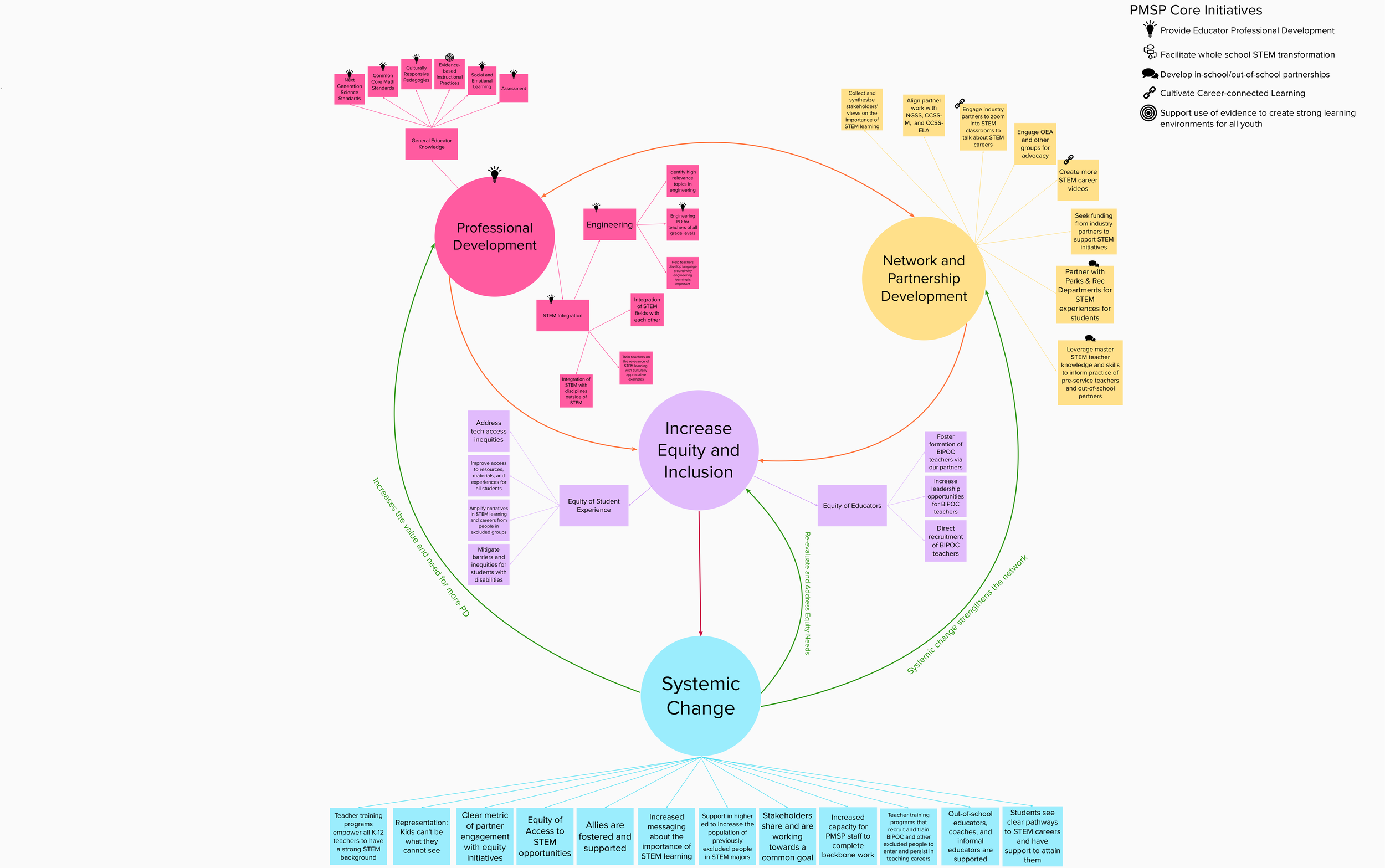At the October PMSP All-Partner Meeting, we asked partners to engage in an activity that would help us understand the major challenges to STEM education in our region and the ways in which we can collaborate to address these challenges.
As we worked to synthesize the thoughts of our partners, to align our core initiatives and strategic approaches to the challenges they called out, and to plan for the future, the following became clear:
All roads to the systemic change we envision and hope to bring to fruition must first go through equity.
It is challenging to think of a true “end game” for our work, as the landscape of education, workforce needs, and technological and scientific advances are ever-changing. However, given that our regional Partnership has a major focus on efforts to “achieve equity in STEM education and careers for all students…including improved outcomes and greater participation for underserved students,” we are not surprised that our partners call us to address the STEM education challenges that center on equity, diversity, and inclusion. We must support the recruitment and retention of BIPOC teachers, and ask our higher-education partners to redouble their efforts in this area. We must amplify voices of people from excluded backgrounds, races, ethnicities, genders, and disability status who have succeeded in STEM fields so that they can serve as role models for our young learners. We must support out-of-school educators, particularly those who work for organizations that promote cultural appreciation, and in-school educators, who spend hours each day with our children.
The “We” above does not just refer to those of us working directly for the Portland Metro STEM Partnership, or for the twelve other regional STEM hubs in Oregon. “We” is all of us. “We” is every partner seeking to improve our students’ abilities to think like a scientist, engineer, mathematician, artist, activist, humanitarian, doctor, machinist, arborist, or musician. If we want to see improved outcomes for our students, it’s going to take all of us doing the hard work of asking how we can improve equity in our organizations, improve diversity in our leadership, and improve the ways in which we include and welcome others into our communities of practice. We can’t just measure effort. We have to measure impact.
This work does not just benefit our students. The systemic change we will achieve will strengthen our network and improve partnerships, as we share the impacts of our work with others in the hope that they, too, will improve. As we come together around common messaging and advocacy for equity in STEM learning experiences, as we increase the diversity of the teacher pool in our region, and as we work to improve allyship, we will be able to leverage new ideas about teaching, which will strengthen our capacity for professional development for educators. We will help our communities thrive.
As we move into a new, and hopefully a much better, year, let’s ask ourselves what our organizations can do to move the work of our educational system closer to equity. Let’s reflect on the impact of our efforts, and consider ways in which we could, as individuals, as organizations, and as a network, be even more impactful. There is no shortcut, but there are many ways that we can support one another along the way.
Best Regards,
Stephanie Salomone, Ph.D.
Portland Metro STEM Partnership and the University of Portland


